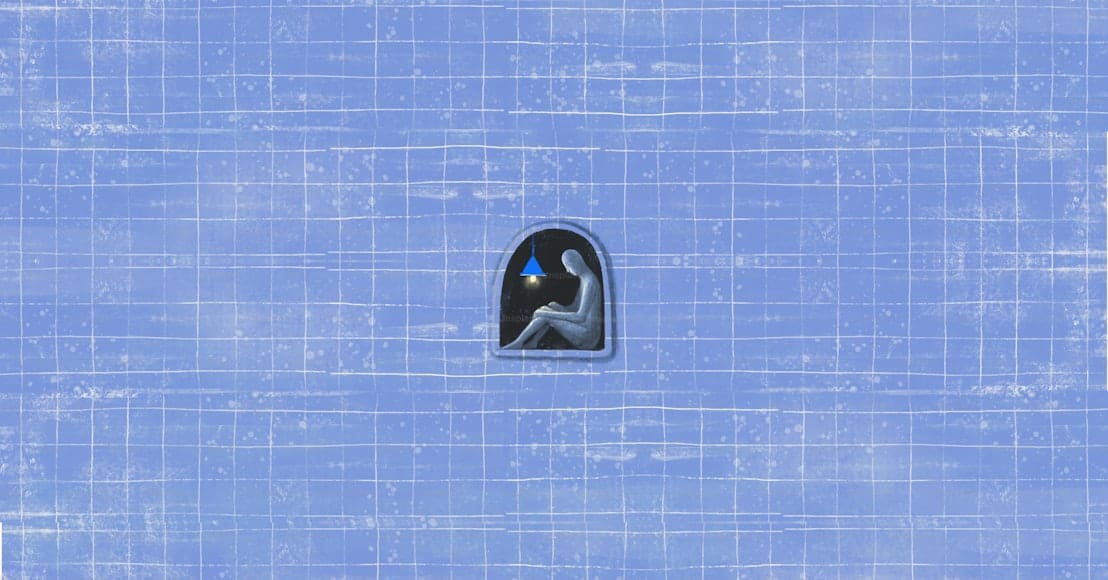
“I worked for many years for a large retail chain in Sarajevo. Over time, the tasks and responsibilities became more complex, and the level of understanding from superiors was very poor, which led to burnout and health consequences.”
This is how a 58-year-old worker (who has chosen to remain anonymous) from Sarajevo begin his story. He tells Balkan Diskurs how he changed jobs due to burnout syndrome and was forced to seek medical help.
“I worked on many tasks, from working in the department that was initially my main priority in my career, to later handling orders, working in the warehouse, overtime hours, and so on, all for the same pay without a raise. I encountered bullying from my manager because he didn’t understand that I couldn’t handle so much work,” explained our interviewee.
He also received a formal warning for shopping in another shopping center in his free time. The stressful situations he was exposed to led to ‘burnout’ and a lack of motivation for work.
Chronic exposure to workplace stress is known as burnout, and its basic characteristics include fatigue, lack of motivation, apathy, general lethargy, loss of interest and willpower, and social withdrawal. Although it manifests individually, the causes are related to the collective work environment. Experts in Bosnia and Herzegovina have been dealing with this phenomenon for the last decade.
Đana Lončarica, a psychologist and psychotherapist, explains that burnout is generally work-related exhaustion that also impacts other aspects of life and human functioning. In some cases, as she emphasizes, medical help is needed.

She explains that groups of people particularly sensitive and susceptible to professional burnout syndrome are those who work in jobs requiring significant effort and overtime. Additionally, personality traits play an important role, as some individuals can be perfectionists by nature and therefore have high expectations of themselves. Lončarica says that those who have difficulty establishing clear boundaries and balancing between personal and professional obligations are equally susceptible to burnout.
“It is important to be aware that burnout can happen to anyone, especially in situations where we do not take care of our mental and physical health,” she adds, emphasizing that findings from neuroscientific research show that our brain needs rest and engagement in leisure activities during free time.
Professional Burnout In Our Twenties
When our 58-year-old worker Sarajevo could see things spiralling out of control, he decided, after consulting with his family, to change his work environment and seek psychological support.
“Working with a psychotherapist has helped me gain new insights and set clear boundaries when it comes to handling work tasks,” he said.
However, it is not just workers in their late fifties who are at risk. Reflecting on psychotherapeutic experiences with clients, Dr. Lončarica says today, an increasing number of people in their late twenties and early thirties are approaching her with burnout.
“The problem of professional burnout is also reflected in private life, and sometimes affects primary needs as well. Most often, clients have problems with insomnia, and this can have a negative impact on their mood, which should be distinguished from depression,” says the psychologist and psychotherapist.
She pointed out that it is sometimes necessary to seek psychiatric intervention, precisely because of this insomnia, which becomes very pronounced; in some clients it has been known to last for a month or longer, which certainly had an unfavorable effect on both their private and professional lives.
The difference between burnout and stress, as she explains, lies in the fact that stress is part of everyday life and is not only negative but can be used productively.
“In burnout, there is a lack of motivation, a decrease in energy, as well as overall fatigue that adversely affects other aspects of life,” Lončarica adds.
The Multiple Stages of Burnout
There are several stages of burnout. Dr. Lončarica says that it all begins with the so-called honeymoon phase, during which people feel joy about new tasks and challenges. After that comes the reality phase, where individuals begin to notice their poor working conditions, strained interpersonal relationships, including poor relationships with their superiors, a major contributor to the onset of burnout. The disillusionment phase occurs when people realize that they don’t have what they want, or when working conditions and relationships are completely compromised.
Finally, there comes the alarm phase, during which symptoms manifest in everyday behavior, and there are changes in the quality of both professional and personal life.
“It is important that we recognize our needs, fatigue, exhaustion, or sadness, and that we know how to verbalize them, and if we cannot, it is necessary to seek professional help,” Lončarica emphasizes, stressing that the foundation of healing lies in communication with oneself, our emotions and needs.
While our 58-year-old worker from Sarajevo was forced to change employers and seek help, there is data indicating that not every employer in Bosnia is a threat to their workers.
According to a survey of more than 230,000 workers in BiH, conducted by Bosnian employment portal Mojposao.ba, the most desirable employer in Bosnia and Herzegovina for the year 2023 is dm drogerie markt d.o.o.. In addition, this company was chosen as the most desirable employer in the retail sector, as well as the most desirable family friendly employer. MojPosao.ba’s survey evaluated the work of 500 nominated companies. Dm-drogerie markt has won the Most Desirable Employer award for the tenth time, of which 2023 was its eighth win in a row. Ines Bajrić, Manager of the Human Resources Development Department at DM, says that managers and team leaders are focused on individual development aligned with the company’s goals and needs.

She emphasized that as managers they should build trust, nurture transparency, credibility and consistency, as this plays a very important role in the team’s resilience to sudden change.
“Managers should provide support, understanding, and encouragement for individual and team growth. We believe that this is crucial for everyone in the team to be more independent and self-responsible, all with the aim of fostering an entrepreneurial mindset within the collective spirit,” says Bajrić.
She also followed up on the concept of emotional intelligence, which in today’s business world, as well as in the company dm, plays a very important role in an individual’s adequate integration into a team, but also in their ability to achieve notable results.
“I always say that soft skills are skills that are carried from the family milieu. This includes empathy, understanding the feelings of others in a certain situation, self-awareness, self-reflection. During the process of professional selection, I pay much more attention to these segments with candidates compared to some professional competences that can be learned over time,” Bajrić points out.
The Four-Day Week: A New Work Model?
Reflecting on the topic of a four-day workweek, modeled after companies in Western Europe, Bajrić believes that through automation and digitalization processes, people should have more time for their private lives.
“At dm, we have our international initiatives where we are working on a new work model. A hybrid work model or remote work does not always mean working from home; it can also encompass other work contexts, such as being at the beach and setting one’s own work pace, sometimes working four hours, and sometimes more. It is extremely important to have trust in our colleagues and to be able to rely on them to consistently complete their part of the work,” says Bajrić.
The World Health Organization (WHO) has included Workplace Burnout Syndrome in its International Classification of Diseases manual, meaning that healthcare professionals can diagnose it as a medical disorder. As of January 1, 2022, Workplace Burnout Syndrome is a recognized occupational disease in Bosnia and Herzegovina. According to experts, diagnosing burnout is complex, and there is still much room for improvement, particularly in the education of specialists. In BiH, diagnosis is only possible in Tuzla at the Clinical Department for Occupational Diseases.






